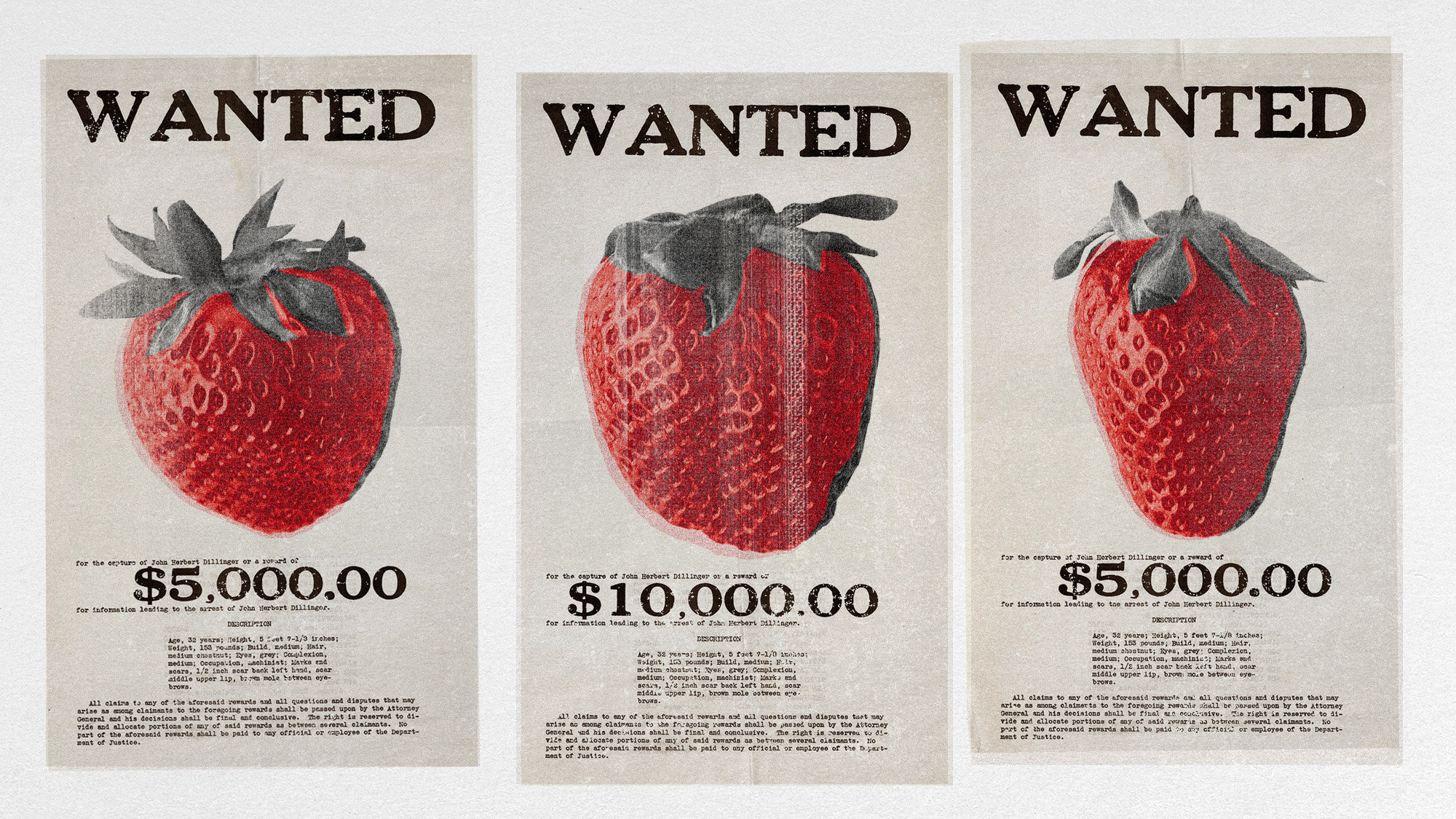How strawberries are funding crime in Sweden
Police say illegal fruit sales turn over 'billions' of kronor a year for gangsters

A free daily email with the biggest news stories of the day – and the best features from TheWeek.com
You are now subscribed
Your newsletter sign-up was successful
Swedes have been warned that picking up punnets of strawberries from roadside vendors risks fuelling the country's gang war.
"What strawberries and cream are to Wimbledon, the jordgubbstarta strawberry cake is to Swedish midsummer", said The Times, "a wholesome and indispensable accompaniment to one of the high points of the national calendar".
But Swedish police raided several roadside strawberry sellers in the run-up to this year's midsummer festival "to cut off what appears to be a lucrative sideline for one of Sweden's most violent criminal organisations."
The Week
Escape your echo chamber. Get the facts behind the news, plus analysis from multiple perspectives.

Sign up for The Week's Free Newsletters
From our morning news briefing to a weekly Good News Newsletter, get the best of The Week delivered directly to your inbox.
From our morning news briefing to a weekly Good News Newsletter, get the best of The Week delivered directly to your inbox.
Fruit sales financing 'serious crime'
The fruit trade "might look like an incongruous venture for an outfit whose core business model has traditionally been drugs and racketeering", said The Times. But authorities say it has become "a significant source of income" for one of Sweden's most violent criminal gangs.
According to Swedish tabloid Aftonbladet, the raided roadside vendors may have links with notorious gang leader Ismail Abdo. He's nicknamed Jordgubben, which in Swedish means "The Strawberry".
Authorities have not commented on which gangs have been linked to the raids, but in a statement they said they had "hit a central violent actor by targeting individuals around this person and their business structures".
According to The Local, the raided roadside strawberry sellers had been "marketing Belgian strawberries as Swedish" before using the revenue to "fund serious organised crime". Authorities believe that illegal strawberry sales are extremely lucrative for Sweden's criminal gangs, with sales turning over "billions of kronor every year".
A free daily email with the biggest news stories of the day – and the best features from TheWeek.com
Authorities also say they found children under legal working age selling on the stalls, as well as migrants without residency permits.
Speaking to The Times, the police chief in the central Swedish district of Bergslagen, Per Lundback, urged the public to be vigilant for signs of criminality. "If you are considering buying [strawberries] from this type of business, you should be aware that you are helping to finance serious crime," he said.
The public should look out for one of the most common warning signs when using Sweden's cashless payment app, Swish, he said. While legitimate sellers usually have accounts linked to a business number, illegal traders will link to private mobile numbers, which are harder to trace.
Sweden's gang crisis
In the last few years, Sweden has become a "European hotspot for gang-related shootings and bombings'' said the BBC. And gang-related violence is now shifting "beyond low-income, vulnerable urban areas" as gang members increasingly target their relatives' rivals.
The Nordic country has "gone from having one of the lowest levels of fatal shootings in Europe to one of the highest in just a decade," said the Financial Times, and "many of the perpetrators are children as young as 14 who are groomed by gangs to carry out hits".
More than 50 people were killed in shootings in the first 11 months of 2023, and there were more than 140 explosions, said the BBC. In 2022 there were a record number of gun-related deaths, with more than 60 people killed.
In a televised address in September 2023, Prime Minister Ulf Kristersson blamed an "irresponsible immigration policy and failed integration" for the unprecedented violence. "I cannot over-emphasise the seriousness of the situation," said the leader of the centre-right Moderate party.
"Sweden has never seen anything like it before. No other country in Europe is seeing anything like it."
Sorcha Bradley is a writer at The Week and a regular on “The Week Unwrapped” podcast. She worked at The Week magazine for a year and a half before taking up her current role with the digital team, where she mostly covers UK current affairs and politics. Before joining The Week, Sorcha worked at slow-news start-up Tortoise Media. She has also written for Sky News, The Sunday Times, the London Evening Standard and Grazia magazine, among other publications. She has a master’s in newspaper journalism from City, University of London, where she specialised in political journalism.